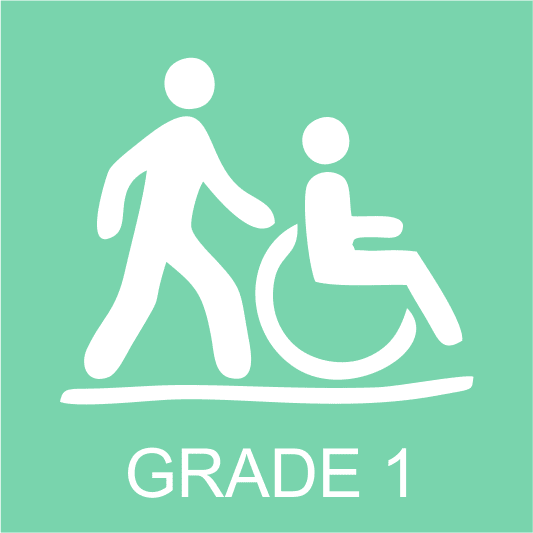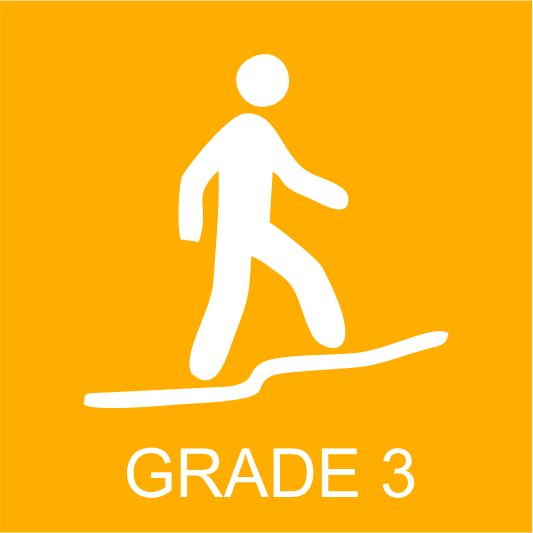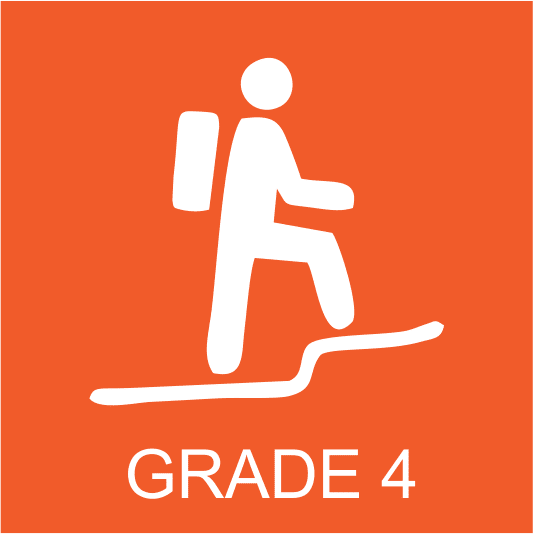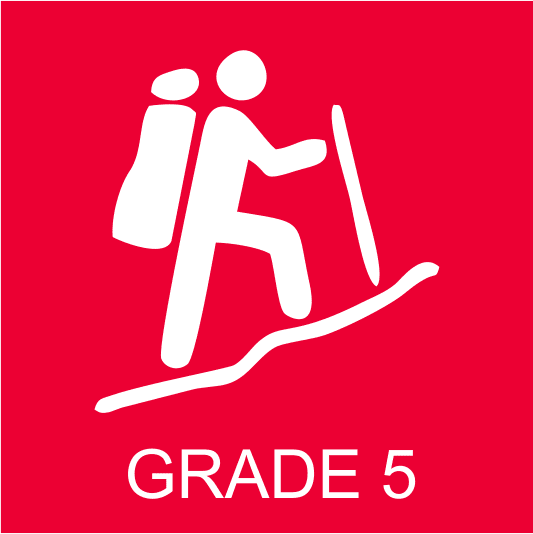Master Hiking Skills
It’s important to acknowledge that not everyone sets out to be an expert hiker. The reality is, assuming someone knows everything can lead to potentially disastrous outcomes, especially in our wild places. There is always more we can all learn, every time we step foot on a trail. Everyone starts as a novice and many of us are happy to stay that way, or increase our skills enough to undertake more challenging hikes. Not all people aspire to developing their level of experience to more advanced levels, so please don’t think the goal of this article is to encourage everyone to aspire to be ‘experts’. You should work to a level where you feel comfortable and confident on the grade of hikes you choose to do.
It’s also important to highlight that people who many might look to as experts, often don’t call themselves experts as they realise there’s always more to learn from nature and those around them. In my experience, self proclaimed experts usually have a tendency to over-claim which may inadvertently discourage others from seeking to acquire essential skills. Again, this can lead to potentially disastrous outcomes.
What this article is really about is how to become a more ‘experienced’ hiker.
Australia’s walking track grading system
Walking tracks in Australia are graded from Grade 1 (all abilities) through to Grade 5 (difficult). Its advisable to select a hike grade based on your level of skill and experience. From there, you can further develop your skills to be able to undertake more challenging hikes? Learn more about the Australian Walking Track Grading System (AWTGS).
How can I go on harder hikes?
I was asked this question recently and it is a very valid one. We all start hiking as novice hikers. No one gets out of bed one day, decides they might try hiking for the first time and heads out on a grade 4 hike. If you do, maybe you want to think about your safety a bit more. As frustrating as it might feel, start slow to develop your skills. Choose places you’re familiar with (I recommend a well formed trail) that will allow you to rest when necessary and get back to your car or home quickly and safely. They key is to start small.
I’ll like to use this analogy. When I first learnt to drive a car, I didn’t grab the keys, jump behind the wheel and head off down the busy freeway at 100ks an hour. I started small. My dad took me down to the local school and shopping centres to drive slowly around the car park, learning the basics of how to handle the vehicle and be aware of my surroundings. This went on for months and towards the end, I was desperate to get out on the road. We then headed out to find some quiet back streets and country roads so I could learn how to handle the car at speed. Gradually, I was introduced to more traffic, different road conditions, different weather conditions, was taught how to navigate (using a Melways in those day) and was introduced to basic car maintenance. After the end of a twelve month period, I was confidently driving in all traffic conditions.
Hiking is the same. When I started hiking regularly, I spoke with a couple of guys who were heading out on a grade four hike in the Lerderderg (VIC). I was really excited about joining them but they said NO as they had not hiked with me before and didn’t know my level of expertise! At first I was really disappointed and felt this was a bit harsh. In retrospect it was a wise and sensible decision on their part. I desperately wanted to do the hikes they were doing so made a plan to gain more experience.
Developing your hiking skills
I headed down to the You Yangs (VIC) where the trails were well formed, relatively short and populated with other walkers. I completed all the circuits I could find before printing a map and buying a compass. I knew I didn’t need them to navigate these trails as they were so well marked but I wanted to teach myself the basics of navigation. After a few months, hiking the same trails, I felt confident I could relate the surrounding terrain to the map, understood how to find north, follow a bearing and determine which trail to take (at a junction) based on the bearing.
It was now time to take these skills and hike in an area I had not hiked before. I headed to the Werribee Gorge (VIC) and started hiking. The trails, back then, weren’t as well signposted or populated as they are now so I was able to practice my navigation skills in an isolated environment, over more varied terrain. Werribee Gorge has a lot of opportunities for some fun rock scrambling and river crossings which I really enjoyed. It was a great place to develop these skills. When I was confident I could navigate the trails easily, I planned a few off-trail hikes in the park so I could be more reliant on my map and compass skills and ability to read the terrain. It also allowed me to further develop my rock scrambling skills. I felt confident in this park as it is only small and was virtually impossible for me to become lost.
I enjoyed rock scrambling so much that I organised a commercial company to provide myself and a few friends with a handful of rock climbing sessions in the gorge. These helped me gain balance and confidence while clambering over rocks as well as the skills to successfully locate foot and hand holds in more vertical rock faces. To further these skills, I joined a rock climbing gym in Melbourne’s CBD for a few months. I have never aspired to becoming a rock climber but these skills have given me a lot more confidence to hike where I want to hike.
Time to level up
I started hiking grade 2 hikes and after 12 months of planning, repetition and skills-training in areas I knew, I was confident I could now join my mates on a grade four hike. Most of the hikes I undertake these days are grade 4-5 and I often lead hikes in remote areas. The skills I have developed have taken over ten years, often hiking every weekend. I like to be methodical, thorough and prepared. I also prefer to understate my abilities so I don’t get over confident so it might not take you that many years to develop the skills you need. However long it takes, just be sure you are ready to move to the next level and aren’t being dragged along by your mates.
So, back to my car analogy, you can see the similarities, I started small, developed the skills and confidence and then took on more challenging hikes.
Short answer to the original question, ‘how can I go on harder hikes?’ Take baby steps, don’t be afraid to ask for advice, be patient with yourself while you plan your hikes, develop your skills. Take time to refine them and practice, practice, practice.
While it is not recommended that you hike solo, I did in the beginning, as for me it removed the distraction from those around me, allowed me to go at my own pace, made me more aware of my surroundings and forced me to be a self-reliant hiker. For me, self-reliance is the key to hiking. If you are separated from your group, you need to be able to survive on your own terms.
Set a goal for the level of hiker you want to be (Novice, Advanced Beginner, Competent, Proficient, Expert) and work towards it at your own pace.












